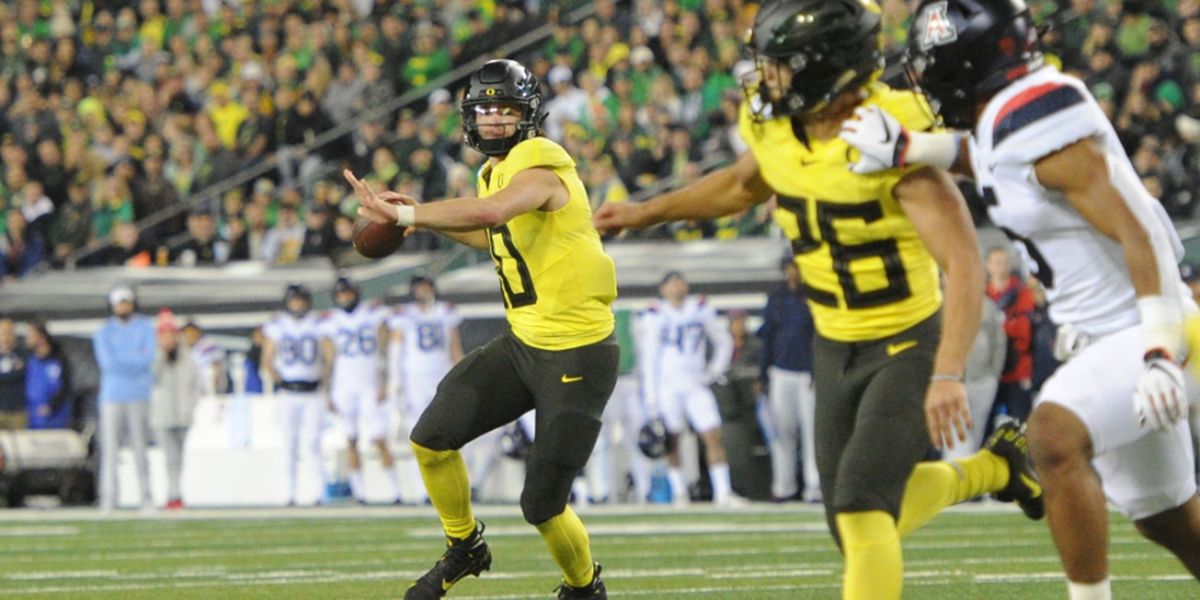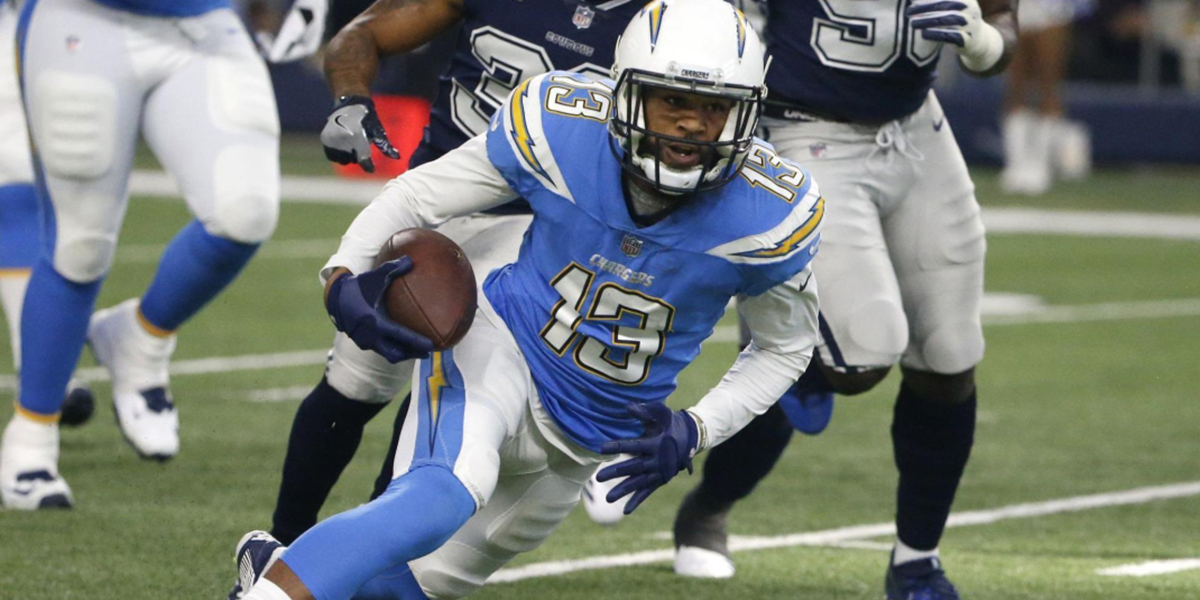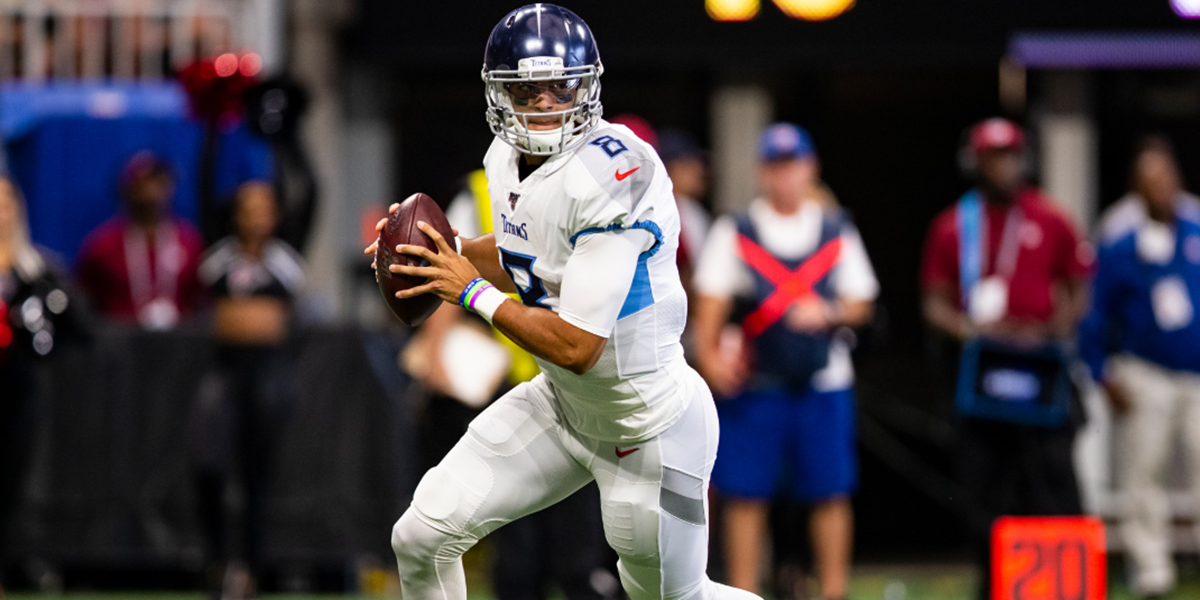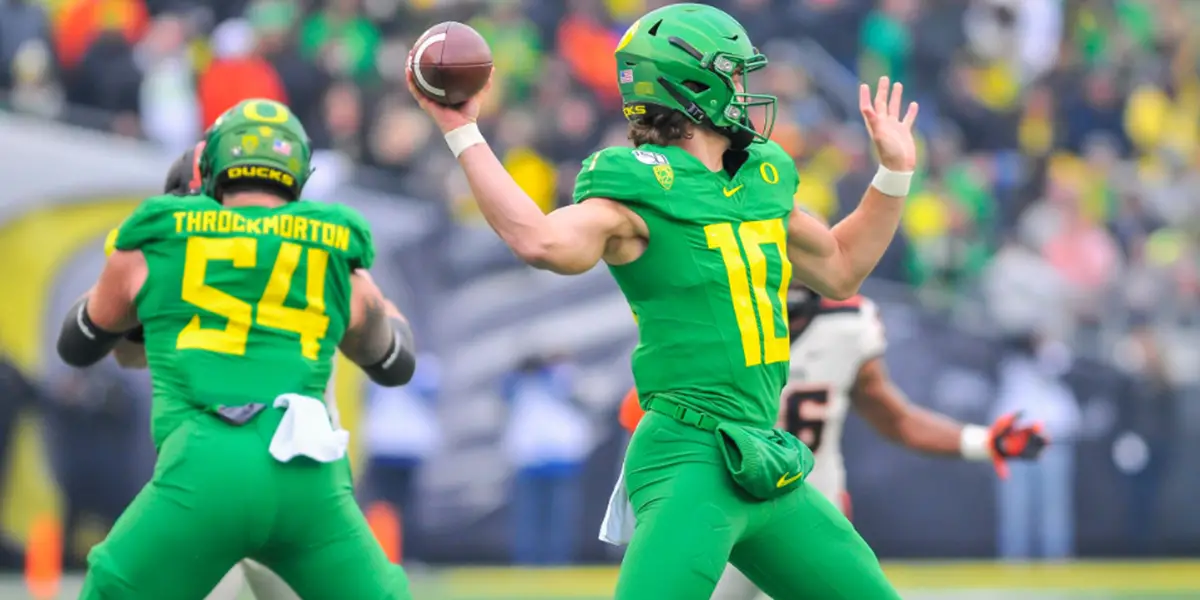Marcus Mariota is undoubtedly the greatest quarterback to put on an Oregon Ducks jersey. He took the country by storm in his three collegiate seasons, carving up defenses with a blend of blazing athleticism and pinpoint accuracy. He became Oregon’s first and only Heisman trophy winner in his final season, and he nearly led the Ducks to a long-awaited national title.
Justin Herbert had the unenviable task of emerging from No. 8’s shadow. Comparisons between the two were inevitable, and Herbert never quite reached the heights that Mariota did in college. But he’s actually set to outpace the Heisman winner in the NFL. In football, individual success is often due to really good supporting talent and coaching. And Herbert, unlike Mariota, landed in a very advantageous environment to start his career.
Herbert’s Supporting Cast Is Really Good
Perhaps the biggest reason Herbert is set up to have success in the NFL is the talent level of his supporting cast. Quarterbacks are said to be the most important position in sports because of how large of an impact their play has on their team’s success. That’s an accurate sentiment, as quarterbacks influence football games far more than any other individual position.
But collectively, the ability of the other 10 players on offense is just as valuable. A really good quarterback’s team can still struggle offensively if his supporting cast is lackluster. Likewise, an average quarterback can lead a really good offense if his supporting cast is talented enough.

A quarterback’s success is often dictated by his supporting cast.
Many of Mariota’s struggles in the NFL were due to him having to lead a team that had done a poor job of building an NFL roster. When the Titans drafted Mariota in 2015, they were coming off of a disastrous 2-14 season, and their roster was as devoid of talent as their record indicated. Tennessee had just a couple of players whom the casual fan would likely recognize today: tight end Delanie Walker and defensive lineman Jurrell Casey. Outside of those two, the Titans essentially had replacement-level players across the board, and although the Tampa Bay Buccaneers were the worst team by record leading up to the 2015 NFL Draft, there’s an argument to be made that the Titans were the NFL’s true bottom dwellers.
The same can’t be said about the current-day Los Angeles Chargers — Herbert’s landing spot. Although the Chargers struggled in 2019, finishing with a 5-11 record, they were just a year removed from a 12-win season and a trip to the playoffs. The Chargers aren’t the most talented team in the NFL, but they’re heads and tails better than the 2015 Titans, and they have far more difference makers on both sides of the ball.
Out of the backfield, Herbert will have one of the best receiving running backs in all of football — Austin Ekeler — at his disposal. Ekeler will make life easy for Herbert on multiple fronts, as his elusive skills as a ball carrier will help take pressure off of Herbert and the passing game, while his elite receiving ability at the running back position will create matchup nightmares that will make for easy reads and open receivers.
Ekeler isn’t the only elite playmaker on the offense, though. Receiver Keenan Allen and tight end Hunter Henry are both among the best in the league at their respective positions, and they’re each adept at getting open and making plays down the field in the passing game. Talented receiving options are the most valuable tool that a quarterback can have in his arsenal, and they especially benefit rookie quarterbacks.

Allen is a top-tier receiver.
Even defensively, the Chargers have plenty of talent, which should give Herbert confidence and a greater margin for error. Los Angeles has one of the best secondaries in the NFL, with longtime stalwarts Casey Hayward and Desmond King being joined by star safety Derwin James, who missed most of 2019 with an injury, and newcomer Chris Harris Jr., who has been one of the best cornerbacks in the game over the past decade. The secondary’s job will be made easier by the elite pass-rushing tandem of Joey Bosa and Melvin Ingram — both of whom continue to terrorize quarterbacks better than just about any other duo in the league.
The Chargers have a playoff-caliber roster, and that alone gives Herbert a better shot to succeed in the NFL than his Oregon counterpart. He can afford to get his feet wet since his supporting cast is good enough to pick up the slack if he slips up.
The Chargers Have a Good Infrastructure
In addition to a good supporting cast, good, creative coaching helps a quarterback and his offense maximize their abilities. It’s common in college to see poor coaches and structures waste elite talent (look at USC’s struggles in recent years), and the same is true in the NFL. The 2019 Cleveland Browns are a recent example of a team that was littered with talent yet underachieved significantly due to a lack of organizational control and poor coaching.
A poor infrastructure led to some rough years in Tennessee for Mariota. Schematically, Mariota had absolutely no experience running a traditional NFL offense. His athleticism, ability to throw on the run and proficiency in the play-action passing game suggested that whichever team drafted Mariota should tailor their strategy to best take advantage of his unique skill set, similarly to how Washington altered its scheme when it drafted dual-threat quarterback Robert Griffin III a few years earlier.

Mariota never played in a system that highlighted his special talents.
However, coach Ken Wisenhunt, and eventually coach Mike Mularkey, stubbornly tried to fit a round peg into a square hole. They did little in the way of adding spread concepts to their antiquated offensive systems, and they tried to make Mariota succeed as a traditional pocket passer, which accentuated his flaws rather than his strengths. Overall, the team’s “exotic smashmouth” direction was designed to render Mariota as little more than a game manager (something that he often struggled at, ironically), which was a complete waste of his unique skill set.
Coach Anthony Lynn for the Chargers has had experience coaching quarterbacks with varying skill sets, and instead of forcing each of them to adapt to his static scheme, each time he has altered his scheme to best fit their skill sets. As offensive coordinator in Buffalo, Lynn helped quarterback Tyrod Taylor put up some of the best numbers of his career by implementing more option-style concepts, and encouraging him to embrace his athleticism.
In Los Angeles, with Phillip Rivers at the helm, Lynn went the traditional route and let Rivers do what he does best: drop back and distribute the ball to his playmakers, while leaning on a physical running game. Herbert has his flaws as a prospect, but it’s safe to assume that Lynn will do his best to hide those by adjusting his scheme accordingly.
With a system in place that is uniquely designed to help him succeed, and plenty of talent across the board, Herbert has every opportunity to make a name for himself as an NFL quarterback. The Chargers learned from the mistakes of the Titans, and the subsequent struggles of Mariota, and they did everything in their power to ensure the same fate doesn’t await a second Oregon signal caller.
Herbert wasn’t able to top Mariota’s college accomplishments, but there’s a good chance he’ll be the better quarterback at the next level.
Joshua Whitted
Morgantown, West VirginiaTop Photo by Kevin Cline
Joshua is an adopted Duck fanatic, originally hailing from southwestern Pennsylvania. His love for the University of Oregon began as a young child when he became mesmerized by the flashy uniforms and explosive offenses of the Chip Kelly era, and now, he follows the team religiously. His fondest memory of the team is seeing De’Anthony Thomas race past Wisconsin defenders back in the 2012 Rose Bowl. A true football enthusiast, Joshua loves studying the intricacies of the game, and he aspires to become a professional sports journalist. Joshua now resides in Morgantown, West Virginia where he works in customer service. When he’s not watching Oregon replays, Joshua loves reading, writing, and spending time with his family. Contact: whittedjd@gmail.com


